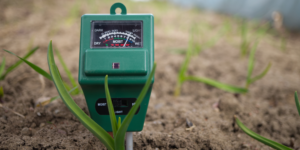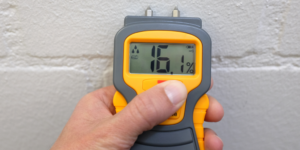© All Rights Reserved | Roof Replacement and Repair - Zaman Roofing LLC. | Website Design & CT SEO Powered by High Point SEO CT
- Google Rating5.0Based on 33 reviewsZaman Roofing - CT Roofing Contractors & Roof Repair5.0Sergey Y."Zaman Roofing” recently completed a roof replacement project in our condo complex, and we are extremely satisfied with their service. From start to finish, their team demonstrated professionalism, efficiency, and exceptional craftsmanship. They were prompt in their communication, providing detailed explanations and answering all our questions. The crew arrived on time, worked diligently, and completed the project within the estimated timeframe.Not only did Zaman Roofing exhibit outstanding technical skills, but they also ensured minimal disruption to our daily activities. They took great care to protect our property, cleaning up thoroughly each day and leaving no trace of debris behind.The quality of the new roof is outstanding. Zaman Roofing used top-grade materials and paid attention to every detail, resulting in a sturdy and visually appealing finished product. The roof has significantly enhanced the overall appearance of our condo complex.We would highly recommend Zaman Roofing to anyone in need of roofing services. Their professionalism, expertise, and attention to customer satisfaction make them a reliable choice for roof replacements. We are grateful for their excellent work and would not hesitate to hire them again in the future.Christopher Z.Zaman Roofing was AWESOME!!!! This is my third time doing a roof in CT on my third home and Zaman did an outstanding job on my rather unique roof line. They even replaced a skylight. I needed a Roof Contract in place before insurance would allow the purchase because the seller was a DeeBag. Zaman worked with my realtor, banker, etc and even waited patiently while the seller delayed the process by 4 months. The week I closed, Zaman Roofing was up and at em. Stripping, prepping and replacing. In and Out. Property was nice and clean after the work was complete. I would highly recommend.Steve TZaman Roofing, located in Berlin, CT, truly excels in providing top-notch roofing services. I am absolutely thrilled to give them a well-deserved 5-star review for their outstanding work. They have proven themselves as experts in roofing Berlin CT, and I couldn't be happier with the results.When it comes to roofing in Berlin, Zaman Roofing stands out from the competition. Their team of skilled professionals demonstrated exceptional attention to detail during the installation of my new roof. They meticulously handled every aspect of the project, ensuring both aesthetics and durability were top-notch.What impressed me the most was Zaman Roofing's commitment to customer satisfaction. From my initial contact with them, they were responsive, courteous, and eager to understand my specific roofing needs in Berlin. Their exceptional customer service throughout the entire process made me feel valued as a client.Zaman Roofing's expertise in roofing Berlin is truly commendable. They have an extensive portfolio of successful projects throughout Berlin, CT, showcasing their skill and knowledge in a variety of roofing styles and materials. Regardless of the complexity of the job, they have the necessary resources to deliver exceptional results.I cannot emphasize enough how satisfied I am with Zaman Roofing's services in Berlin, CT. Their professionalism, reliability, and dedication to their craft are unparalleled. If you're searching for exceptional roofing services in Berlin CT, Zaman Roofing is the company to choose. They will exceed your expectations in every way.In conclusion, Zaman Roofing unquestionably deserves a stellar 5-star rating for their exemplary roofing services in Berlin, CT. Their expertise in roofing Berlin and roofing Berlin CT shines through in their exceptional workmanship and customer service. I highly recommend Zaman Roofing for all your roofing needs.Gary G.Zaman replaced the roof on my 2,200 sq. ft. colonial in 2015. The workmanship was perfect. Unfortunately, over time, the top-of-the line shingles discolored. He was totally supportive in getting the manufacturer to replace them at no cost to me. He just replaced the roof with the new shingles. It was another perfect job. It was completed in one day. The crew was great and they cleaned the area spotless.Chris DWe used Zaman Roofing for our Roof and Gutter Replacement, I acquired 5 quotes for the work and found Zaman to be the most reasonable, it was a Good Decision to choose Zaman Roofing, Seweryn was Professional in every aspect and the Clean-up was nothing short of Amazing, I would Highly Recommend using Zaman RoofingRobert D.Excellent Service and Value - great crew and easy to deal with - highly recommended !Sunghoon P.Great work and reasonable price. I am so happy with their service. I asked a bunch of questions before and after the service and his responses were very prompt and straight to the point. Highly recommend.Adrienne M.I am so pleased that I used this company. My new roof looks fantastic. Such a hard working crew. Seweryn was informative and professional. Price was very completive. Don't hesitate to use them you will be very satisfied. Highly recommend!Nancy M.Good communication, timely response and knowledgeable. Very happy with our experience and highly recommend this company.Beata M.We used Zaman for our roof replacement recently and are very pleased. They replaced our roof in one day and gave us a very competitive quote. Good quality of work. Highly recommended.Lori K.They were here when they said they would. Professional & left everything neat ,cleaned up everything. They were in & out in a day & a half. Would recommend Zaman roifing.Dan R.A+ service, professional and quick response time.Anna G.Zaman and his crew provide great workmanship they installed new roofs they take great pride in the work they do. They were punctual and did a amazing job with the roof installation and clean up. Highly recommend Zaman Roofing to family and friends. Thank you for the opportunity to work with such a amazing contractorScott M.Awesome contractor, I would highly recommend him to family & friends. Seweryn & his crew were here on time & worked diligently. They were the happiest workers I've ever dealt with (I am a former construction project manager with the Federal government). Any & all questions were answered. My neighbors couldn't believe they finished the job in one day & complimented how great the new roof looks.Clement D.Great roofing contractors. I love to recommend it to my friends and family.Karen 9.With the quality, price, timeliness, all round nice guy and great crew, Zaman Roofing LLC is what other companies aspire to be.... Clean, helpful and a pleasure to recommend....james C.Excellent experience from start to finish, all appointments and work times met in a timely fashion, workmanship and clean up left nothing to be desired.Would be a definite recommendation, very pleased.Margaret B.I had obtained multiple quotes and did my due diligence research and Seweryn Zaman came back with fair price and good recommendations. He was professional, explained everything that he was going to do and never once he rushed me during decision process. He showed up on time with his hard working crew and finished my roof in one day. I was amazed with his crew who worked like busy bees. Very impressed with the clean up process and the end product. Two months after he finished my roof he was still helping me deal with the insurance company making sure I had everything I needed. Thank you SewerynSteve B.Very professional and easy to work. The crew came in, replaced my roof and then cleaned up everything! Highly recommended.Jim O.Competitive quote among four others. Seweryn Zaman provided larger color samples of the shingle colors we were interested in. He obtained the building permit, showed up on the day expected with his entire crew. Our older roof was on 24" trusses and needed more plywood replaced than anticipated. He got the additional sheets replaced on the day of the re-roofing. The crew worked with him late until the job was done and picked up every piece of old debris. The roof passed final town inspection with no concerns. Zaman Roofing is easy to deal with; he's responsive on text messages and phone calls. I used them in the past for an emergency repair and he found a well-hidden leak from the builder.Dale C.The crews did a good job, and the leader of the crew did a great job when they replaced the roof of my house in Farming on 7/6&7 this year. When they worked on the project, they worked professionally and in detail. We are very pleased with the work they have done, and highly recommend people to have the company worked on their roof projects.Forrest B.Zaman's was very professional, excellent quality of work and very responsive to our needs. This roofing experience was excellent from start to finish and provided an excellent value. Would certainly recommend them to any friend.Yonatan M.We used Zaman Roofing to replace our roof in 2019 and could not be happier with the service and product. A highly professional company and great personal interaction with the owner. The workers took great care of our landscaping, and the owner was there frequently to supervise the work and take care of finishing touches like flashing the chimney. We have had zero issues since then and highly recommend this company.Quinn V.Zaman was awesome. He was communicative, on-time, and was able to give me a quick inspection of our roof despite the rain. I rarely have a contractor tell me that I didn't need to spend any money, but Zaman told me my roof was fine for the next several years.magdalena K.We recently used Zaman Roofing to replace our 26-year-old roof. Right from the start they were great! Sevy was extremely professional and knowledgeable and gave us a great quote. Everything was done as they described and the final project looked great. The owner was on the job from start to finish as he promised.Ariadna G.Our experience with Zaman Roofing was excellent. I was very impressed with both their work and their customer service. Seweryn was very knowledgeable and professional.Larry G.What a wonderful business. Very responsive. They showed up exactly when expected, completed the project quickly and accurately and left no trace after clean up. All with a very competitive price. I would highly recommend Zaman to anyone looking to have roofing work done.STEVE R.I was very pleased with the roof and gutter repairs performed by Zaman Roofing on two of my buildings. Good workmanship and fair prices, I would recommend and use again.Danielle D.These guys stripped and reshuffled my roof is 1 day! They did an awesome job. Roof is beautiful. He uses a dump trailer which is great and they cleaned up well. Very happy with the work. Also pricing was fair.

Moisture Meters Are Essential for Roofing Contractors’ Toolkits
Category: Roofing • March 22, 2024
Roofers monitor the moisture content of a roof by using moisture meters to identify and prevent roofs from deterioration. These tools monitor roofing material moisture, and through this, contractors can identify problems that are about to become major problems. With moisture meters, roofing contractors can rapidly and effectively identify and solve moisture problems, which in turn will result in time, money, and effort saved.
The Importance of Moisture Meters in Roofing
If there is no diagnosis and treatment, moisture can damage the roof. Mold and mildew can corrode the roof and cause negative health consequences when moisture levels are too high. Moisture is the main cause of wood rot, corrosion of metals, and degradation of insulation. Such problems can cost a lot; for instance, the roof could have to be replaced completely.
Roofing contractors rely on moisture meters that show high moisture areas in roofing materials. Contracting partners can minimize the damage and stop further corrosion by detecting these problems on time. This measure is not only pocket-friendly but also results in a longer roof lifespan.
How Moisture Meters Work
Electrical conductivity or capacitance, measured by a moisture meter, is used to determine the amount of moisture in materials. The probe is placed into the roofing material where the test is held. The probe transmits an electric impulse, and the level of moisture is established by measuring the resistance or capacitance.
Roofing contractors have the option of pin-type, pinless, or combination moisture meters. With the help of two pins made of metal that are inserted into the material, the pin-type meters can be used to check the moisture level. Damage-free pinless meters are able to detect various material surfaces by using electromagnetic waves. Combo meters are the ones that give contractors the option to choose the best pin or pinless mode according to the given circumstances.
Types of Moisture Meters for Roofing Contractors
Roofers have many moisture meters to choose from, each of them having both its advantages and disadvantages. Pin-type meters are the most widespread type and very reliable in evaluating the moisture content at any given point in the material. At times, they can pierce small holes in roofing material, which is not acceptable at all.
Pinless gauges are appropriate for vast areas or delicate items and are non-destructive. Their visualization of moisture distribution is more universal than pin-type meters, but their accuracy may be lower. Combination meters with combined pin and pinless modes are useful tools for contractors as they provide them with testing options.
Benefits of Using Moisture Meters in Roofing
The roofing contractor gains a lot from the moisture meter in his jobs. To start, the use of these devices ensures that measurements are precise and accurate, which is necessary for calculations of roofing materials. Correctness significantly reduces the amount of work that is redundant, such as repairs and replacements, which usually consume a lot of time and cash.
Contractors can now access and discover problem areas quickly without the need for manual exhausting inspections through moisture meters. This eliminates the need to rent equipment, saves time and resources, and allows contractors to finish their jobs faster.
In real life, roofing contractors have used moisture meters to determine the level of moisture in a roofing structure. A contractor provided a moisture meter when a roof had a high moisture level before any damage showed up. By doing so, they prevented further damage and saved costly repairs. Meanwhile, the other contractor used a moisture meter that functions as a combination meter to conduct an inspection of the huge commercial roof and found that the roof required immediate attention. This preventive measure contributed to the prolongation of the roof life and the prevention of leaks.
Tips for Choosing the Right Moisture Meter for Your Roofing Projects
Selecting a moisture meter for a roofing task comes to mind a few criteria. Getting the exact measurements is vital for making well-informed decisions. Check if a calibrated and precise moisture meter is in place.
It is obvious that rooftop jobs are tough and require a long-lasting tool. Conduct a thorough inspection of the moisture meter’s build quality and materials to ensure that it can get the job done.
Likewise, ease of use should be considered, primarily for contractors who are not accustomed to moisture meters. Since usability is a key factor, select a device that has clearly written instructions and controls.
Why Moisture Meters are a Must-Have Tool for Roofing Contractors
To sum up, professionals in the roofing business must have moisture meters. They are quick to identify and avert roof moisture damage, eventually saving time, money, and labor. Contractors can identify problems early and reduce damage to the roofing material by accurately evaluating the moisture inside the material.
Although this moisture meter is multi-functional, the contractor can decide which one is best for a specific case. Water meters used in roofing projects give the designers more accuracy, efficiency, and cost-effectiveness.
Contractors should elect moisture meters that have high precision, durability, and user-friendliness. A moisture meter with the right brand and build quality is integral to the successful completion of roofing projects for roofing professionals in order to make long-lasting roofs.




